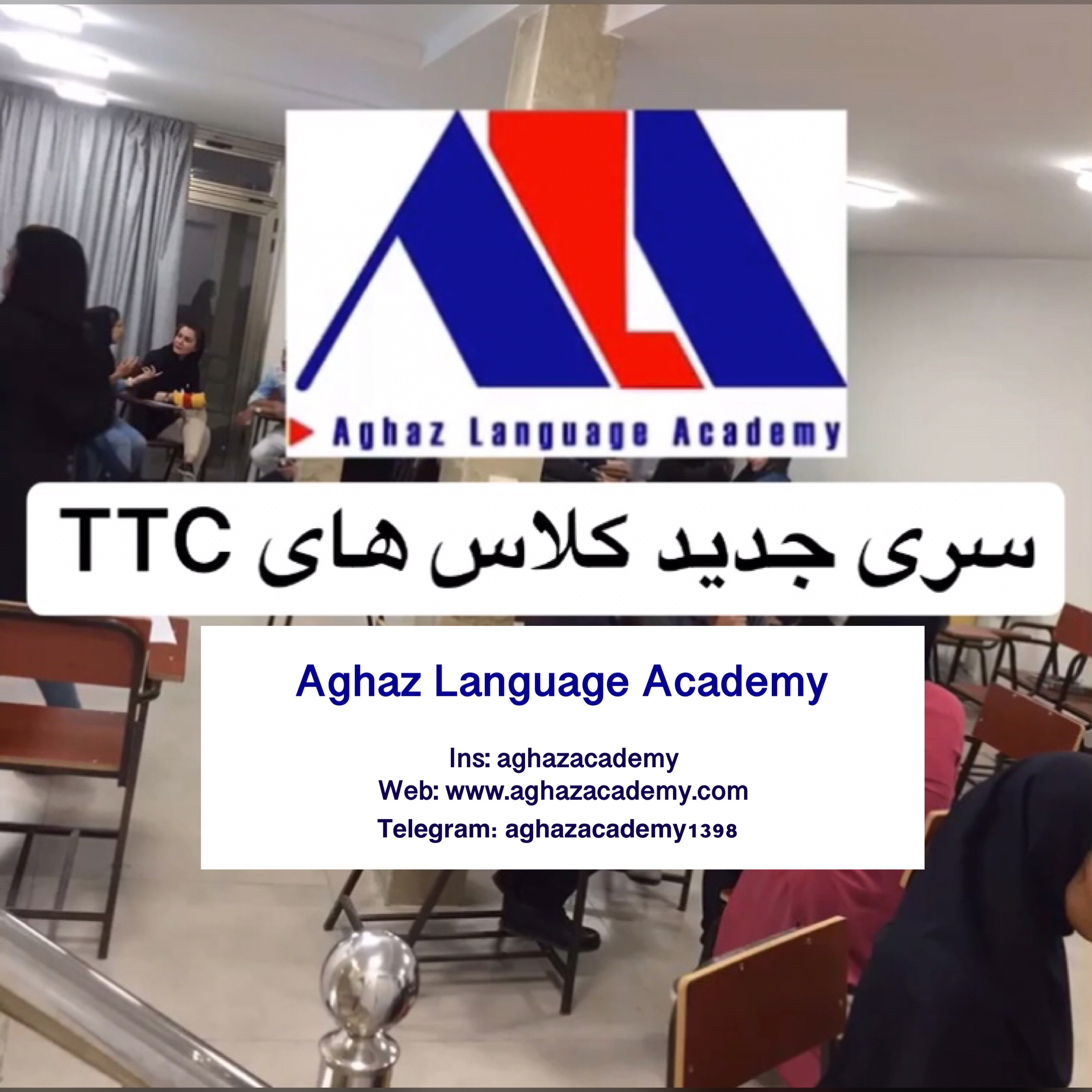


آزمون دیپلم طبق روال هر سال در بهمن ماه در تاریخ ۲۴/۱۲/۱۳۹۸ برگزار خواهد شد.
گواهی پایان دوره کودکان و بزرگسالان درهفته آینده تحویل زبان آموزان داده خواهد شد.
شروع تمرین برای مسابقه تغییر متن آهنگ در تمامی سطوح آموزشی در آکادمی از همین هفته شروع شد.
تمامی زبان آموزان تا زمان نهایی اجرا ۳ هفته فرصت دارند.
جلسه بحث آزاد هر پنجشنبه در کافی شاپ آتلانتیس (قلب شهر) برگزار می شود. مفاد مربوط به جلسه ی قبل به شرح زیر است:
بحث در مورد بخش کوتاهی از کتاب Mark Manson
استندآپ کمدی در رابطه با تنوع لهجه ها در زبان آموزان زبان انگلیسی در دنیا
سخنرانی تد تحت عنوان TED A با محوریت به اشتراک گذاری تجربیات شخصی و نحوه ی صحیح جهت رویارویی با مشکلات اجتناب ناپذیر اجتماعی
بازی would you rather…? با هدف افزایش مهارت speaking
جلسه آموزشی خانواده ها برای گروههای phonics و adventure starter چهارشنبه هفته گذشته برگزار شد.
اولین جلسه سری جدید دوره TTC در روز سه شنبه هفته جاری برگزار شد.
Eliciting
Eliciting (elicitation) is term which describes a range of techniques which enable the T to get sss to provide information rather than giving it to them. Commonly, eliciting is used to ask sss to come up with vocabulary and language forms and rules, and to brainstorm a topic at the start of a skills lesson.
Tools for eliciting
Language and ideas cannot be elicited without some input from the T, and eliciting is certainly not an excuse for not presenting language in a context. Sss also need prompts, associations and reminders in order to jog their memories.
- Often, the T provides stimulus using visuals or the board.
- A situational dialogue, example sentences or a listening/reading text may provide the context from which the target language is elicited. In this case, the T is asking the sss to notice how a particular function is expressed, and eliciting is combined with concept questions.
- Eliciting ideas and background information also requires input. This may come from a T’s anecdote or story, a text, pictures, or a video, and involves the sharing pf knowledge between T and sss. Information is often elicited onto a mind-map on the board.
Tips for eliciting
Eliciting is a basic technique and should be used regularly, not only at the beginning of a lesson but whenever it is necessary and appropriate.
Don’t try to ‘pull teeth’. Prolonged silence or incorrect answers suggest that input is required from the T.
Don’t ask sss to repeat incorrect answers, but ask a variety of sss to repeat a good answer.
Acknowledge or give feedback to each answer with gestures or short comments.
Provide sufficient context or information. Eliciting differs from Socratic questioning in that it is designed to find out what the sss know rather than to lead them to a conclusion which only the T knows.
Sss can elicit from each other, particularly during brainstorming activities. This helps to build confidence and group cohesion as well as shifting the focus away from the T.
At lower levels, more guided questioning is needed. Open-ended questions should be avoided as the sss are unlikely to have the language to answer them to their own satisfaction.
https://www.instagram.com/p/B0n-tPchm-G/?utm_source=ig_web_copy_link
شروع سری جدید کلاس های TTC
Warm-up:
A warmer is an activity at the start of the class to warm up the learners. They tend to be short, dynamic activities.
Beginning your lesson plans with a five-minute warm-up or icebreaker can serve to focus your students on a new topic, open up creative thinking, and help them to apply the learning in new ways. The feedback you get from students also gives you an instant reading on where their heads are.
When preparing lesson plans for our EFL classes, we must include at least the following parts so that warming up activities can play a clear and meaningful role in our teaching. Kay (1995) describes the stages of a lesson plan in the following way:
Warm up: "It is an effective way to help the students begin to think in English and to review previously introduced material. Different types of warm ups help provide variety and interest in the lesson" (p. vi). A warm up to prepare students for a period of concentration may involve physical movement with activities that keep them active by standing up, walking, jumping, matching pictures with sentences or vocabulary, drawing or writing personal experiences or stories, and singing or listening to familiar songs and chants. These are, among others, enjoyable and motivating warms ups.
